
NEW COURSE!
Course Faculty - Inger Brueckner
Course Description - Updated Course! Inger Brueckner, MS, PT, shares her vast vestibular experience combined with current research to offer updates covering anatomy, function and development of the vestibular system. Plus, how POTS, autonomic dizziness, COVID, cerebral palsy, sensory neural hearing loss and other neurological disorders relate to pediatric vestibular dysfunction.

NEW COURSE!
Course Faculty - Monica Keen, Kimberly Wynarczuk, Jennifer Elinich, Tanya Myers, AnnMarie Stauffer, Lisa Gradziel, Lori Flynn, Jeryl Benson
Course Description - This on-demand course features 6 sessions (14.5 contact hours - 1.45 CEUs) recorded from Therapies in the School 24th Annual Conference 2023. Use motor learning effectively for all types of learners, incorporate the CO-OP approach with executive functioning strategies for students with ADHD, learn how to protect the mental health of your students and advocate for increased participation for students with complex medical needs.

NEW COURSE!
Course Faculty - Arsenio Paez, Kristin Jones, Anais Villaluna, Dana Kizer, Carolyn Dolby, Susan Cecere, Josephine Bardabelias
Course Description - This on-demand course features 5 sessions (14 contact hours - 1.4 CEUs) recorded from Therapies in the School 24th Annual Conference 2023. Champion neurodiversity affirming practices in your school, understand and promote healthy sleep patterns in all ages, bring movement into the classroom to enhance learning, support feeding and swallowing for school day meals, and embrace productive communication for tricky IEP team discussions and decisions.

NEW COURSE!
Course Faculty - Arsenio Paez, Kristin Jones, Anais Villaluna, Carolyn Dolby, Dana Kizer, Susan Cecere, Josephine Bardabelias, Monica Keen, Kimberly Wynarczuk, Jennifer Elinich, Tanya Myers, AnnMarie Stauffer, Lisa Gradziel, Lori Flynn, Jeryl Benson
Course Description - Complete the full 11-session conference for 28.5 Contact Hours (2.85 CEUs). This on-demand course features all sessions recorded both days at Therapies in the School 24th Annual Conference. From motor learning to mental health, executive functioning to feeding and swallowing, sleep patterns to movement breaks, whether starting or continuing the journey of neurodiversity affirming care, practicing effective decision making and handling tricky IEP decisions, you'll walk away well equipped to better support all of your students and their unique needs.

NEW COURSE!
Course Faculty - Susan Cecere
Course Description - In this new, on-demand course, learn assessment processes that foster interprofessional practice and participation-based goals and strategies to positively impact student outcomes.

Course Faculty - Liesa M. Ritchie-Persaud
Course Description - Develop a systematic approach to the evaluation and treatment of toe walking (including biomechanics, sensory processing, vision/reflexes, evaluation tools and red flags) in order to devise an effective treatment plan that produces successful long-term outcomes.

Course Faculty - Liesa M. Ritchie-Persaud
Course Description - On-demand Course - Recorded from a recent Live Webinar
Develop a systematic approach to the evaluation and treatment of toe walking (including biomechanics and sensory processing) in order to devise an effective treatment plan that produces successful long-term outcomes.

NEW COURSE!
Course Faculty - Liesa M. Ritchie-Persaud
Course Description - In this new, on-demand course, clinicians will apply “The Act!” to identify an etiology-based problem list, choose suitable and feasible interventions and develop a plan of care specific to each child (further enhancing information previously learned in Therapeutic Evaluation & Management of Toe Walking (Pediatric Equinus Gait).

NEW COURSE!
Course Faculty - Kareen Robbins
Course Description - Effectively integrating therapeutic interventions into the RTI process will allow support for students and may reduce the need for a referral. Learn approaches to incorporate therapeutic interventions at each tier. These supports may increase a student's success within the general education curriculum and the need for referrals to a specialized instructional service. Incorporating successful strategies for communication and advocacy with leadership, time management, and resources for therapeutic interventions may break down barriers. The result is a win-win for the administration, therapist, teacher, and student.

NEW COURSE!
Course Faculty - Colleen Whiting, Karen Pryor, Susan Cecere, Valerie Clevenger, Amy Lewis, Kareen Robbins
Course Description - This on-demand course features 7 sessions (16.5 contact hours - 1.65 CEUs) recorded from Therapies in the School 23rd Annual Conference. In Program A, you will learn the latest research regarding strategies for addressing dysregulation in both students and staff, updates in trauma informed care including information about sensory differences caused by trauma, how shifting from a workload model supports student outcomes, strategies to embed PT services into the classroom, why evaluating and treating reflexes through neuroplasticity is important for every school-based therapist.

NEW COURSE!
Course Faculty - Cara Koscinski, Kay de Veer, Cynthia Dodds, Christy Hupka, Amy Barr, Elisa Wern
Course Description - This on-demand course features up to 7 sessions (17 contact hours - 1.7 CEUs) recorded at the Therapies in the School 23rd Annual Conference - 2022. Learn how interoception can be used as a building block for executive function skills, to create consistency using an evidenced based approach when evaluating students with autism, how to address vestibular impairments in the classroom, use UDL to help develop accessible lessons for all students, and how to improve outcomes for the medically complex student.

NEW COURSE!
Course Faculty - Anjanette Lee
Course Description - The first of a 4-part series, this course focuses on three Fundamental Knowledge components: the NICU Environment and its impact on premature infant development, the building blocks of neonatal therapy practice and a thorough dive into neonatal body systems.

NEW COURSE!
Course Faculty - Anjanette Lee
Course Description - The second of a 4-part series, this course focuses on four Fundamental Knowledge components: perinatal medical history, NICU equipment, ethical considerations in the NICU, and neonatal therapy assessment tools.

NEW COURSE!
Course Faculty - Colleen Whiting, Karen Pryor, Susan Cecere, Valerie Clevenger, Kareen Robbins, Cara Koscinski, Kay de Veer, Cynthia Dodds, Christy Hupka, Amy Barr, Elisa Wern, Amy Lewis
Course Description - Complete the full 13-session conference for 31 Contact Hours (3.1 CEUs) This on-demand course features all sessions recorded at both days at Therapies in the School 23rd Annual Conference - 2022.
Course Description - Conference highlights include: the latest research regarding strategies for addressing dysregulation, updates in trauma informed care, how interoception can be used as a building block for executive function skills, how to reduce referrals using RTI and create consistency using an evidenced based approach when evaluating students with autism, how to address vestibular impairments in the classroom, why every school based therapist should be addressing reflexes, how to use UDL to help develop accessible lessons for all students, and how to improve outcomes for the medically complex student.

NEW COURSE!
Course Faculty - Anjanette Lee
Course Description - Learn to approach and treat the complex neonate using a neuroprotective framework and advanced clinical thinking skills.

NEW COURSE!
Course Faculty - Amanda Hall
Course Description - Learn advanced evaluation and treatment of the foot and ankle to improve gait and function for adult and pediatric patients with developmental, neurologic, and orthopedic health conditions.

NEW COURSE!
Course Faculty - Holly Schifsky
Course Description - Learn assessment and treatment skills to maximize infant development and feeding skills for the premature or medically fragile infant with cardiopulmonary compromise who is transitioning to outpatient rehabilitation.
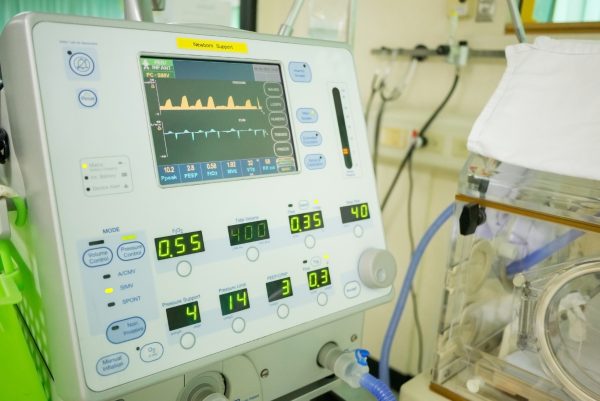
NEW COURSE!
Course Faculty - Holly Schifsky
Course Description - Advance your assessment, treatment, and outcomes for infants requiring a tracheostomy tube and/or ventilator.

NEW COURSE!
Course Faculty - Anais Villaluna, Dana Kizer
Course Description - Through interactive case studies, this brief course will guide your decision-making process of complex pediatric feeding and swallowing cases to BRIDGE the gap between the developmental, neurological, physiological, motor, sensory, and behavioral components.

Course Faculty - Susan Cecere, Jan Hollenbeck, Joanne Szabo, Barbara Connolly, Tim Richmond, Melissa Gerber, Josephine Bardabelias
Course Description - Complete the full, 7-session conference for 18.5 Contact Hours (1.85 CEUs)
ERI's Therapies in the School 22nd Annual Conference - Online Conference 8 offers recordings of seven (7) different sessions from our virtual Therapies in the School 2021 conference held in November, 2021. Invigorate your school-based practice with new tools, strategies and evidence-based interventions with these 7 engaging, motivating and highly informative courses.
The sessions provide a multitude of thought-provoking interventions and tools to help the children on your caseload and offer more efficient ways to interact with other professionals in the school system.

Course Faculty - Melissa Gerber, Josephine Bardabelias
Course Description - Do you have any students that appear clumsy and unaware of their surroundings? Students who can't sit still in their chair and complete classroom tasks? This workshop will address awareness of self in space as well as provide practical activities and tools to use with your students.

NEW COURSE!
Course Faculty - Joanne Szabo
Course Description - Cortical visual impairment (CVI), retinopathy of prematurity (ROP) and optic nerve hypoplasia (ONH); learn how these common diagnoses continue to impact a student's educational progress and motor development. Multiple case studies will be discussed to illustrate the characteristics associated with these diagnoses and how the factors associated with the student's visual/vision impairments affect their IEP goals and treatments.

Course Faculty - Holly Schifsky
Course Description - Learn advanced critical reasoning skills and movement analysis skills (via lab time and video presentations) to assess breathing patterns, facilitation techniques to support trunk development, positioning strategies to support chest wall development, and feeding techniques to maximize postural control.

Course Faculty - Richard Clendaniel
Course Description - Learn effective, comprehensive, and evidence-based treatment and evaluation of the number one reason individuals over the age of 70 seek medical attention: Dizziness.

Course Faculty - Janine Wiskind
Course Description - This course provides therapists with a clear understanding of evaluating and treating primitive reflexes. It teaches clinicians to assess the child’s posture and movement patterns It then goes on to teach the reflexes in groups and patterns as they work together fluidly to promote function.

Course Faculty - Susan Cecere, Kim Wiggins, Kimberly Wynarczuk, Suzanne Davis, Liliane Savard, Colleen Whiting, Angela Sterling-Orth
Course Description - Nine engaging, motivating, and highly informative sessions to invigorate your practice and provide school-based tools to foster growth in your students. Sessions range from addressing motor and sensory pathways, core strengthening, participation-based goals, video self-modeling, collaborating, treating severely involved children, push-in services, iPad apps, STAR program for sensory processing, to best practices for the new school-based practitioner. Purchase the complete Therapies in the School Online Conference 7 series and receive “Supporting Students with Sensory Processing Challenges in the Schools: Using the STAR Frame of Reference” at no cost to earn an additional 1.5 Contact Hours (.15 CEUs).

Course Faculty - Michael Lebec
Course Description - Learn to be comfortable and effective providing care in the emergency room by distinguishing sources of pathology, conducting an efficient exam, and administering interventions even when limited to one or few episodes of care.
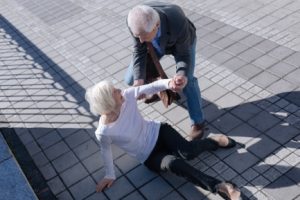
NEW COURSE!
Course Faculty - Richard Clendaniel
Course Description - The course will focus on the assessment and treatment of patients with vertigo and dysequilibrium from unusual vestibular causes. The course is designed for clinicians (PT & OT) with prior vestibular rehabilitation course work and clinical experience. Material covered will include advanced techniques for treating anterior and horizontal canal BPPV, central causes of dizziness (including concussion), identification and treatment of cervicogenic dizziness, chronic subjective dizziness, migraine and other unusual vestibular disorders. This series is one course with 7 short video sessions. Each videos session is 1.5-2 hours.

Course Faculty - Gaye Cronin
Course Description - Recognizing and assessing vestibular disorders can also be challenging, but once the process is completed, you need to be able to develop an appropriate treatment plan. This course will present vestibular treatments as a system of exercises and movements that the clinician learns to select, grade, and develop a continuum for the individual patient.

Course Faculty - Liesa M. Ritchie-Persaud
Course Description - NEW Online Course!
Recorded at a live webinar.
Gain practical “sensory-aware”* tools to treat children with both underlying gross motor and sensory dysfunction.

Course Faculty - Cindy Miles
Course Description - Cindy Miles, PT, PhD, PCS, NDT, a leading expert on torticollis and plagiocephaly discusses the increased incidence, etiology, and pathophysiology of this disorder. This dynamic course is chock-full of case studies and interactive at-home lab practice opportunities to provide the knowledge of effective assessment and treatment of children with torticollis. Learn effective strategies including designing home exercise programs, infant positioning, manual techniques, and taping to support your clinical practice. You will explore how this diagnosis impacts the movement system and resulting impairments in gross, fine and speech motor skills. Evidence-based treatment strategies that can be integrated into routines and functional play will be provided as well as recommendations for follow-up.

Course Faculty - Anne Buckley-Reen, Susan Cecere, Arsenio Paez, Nicole Barmen, Judith Kimball, Kim Wiggins, Kathryn Biel
Course Description - These engaging eight sessions provide school-based tools to foster growth in your students. Sessions range from essential writing tools, neuroplasticity/motor learning, praxis and its effect on executive functioning, typing programs, preschool interventions, mindfulness, IEP writing, and ways to more effectively collaborate with your team.

Course Faculty - Melissa Gerber, Josephine Bardabelias
Course Description - This 2 part session will provide therapists with tools to incorporate therapy for optimal motor outcomes into the educational model, and will discuss sensory and motor systems and their impact on a student’s ability to focus and enhance memory while being able to process information.
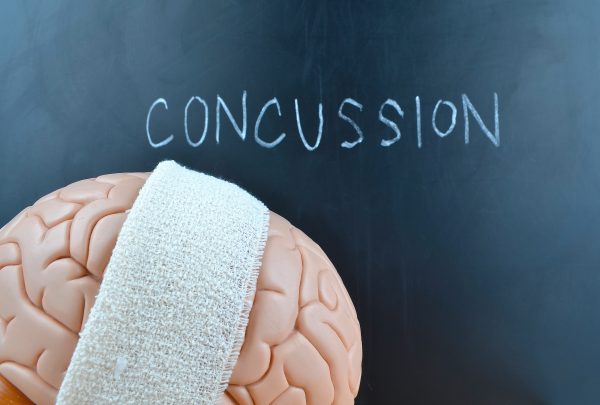
Course Faculty - Christina Finn
Course Description - NEWLY UPDATED. Learn the latest relevant assessment and treatment strategies for patients across the lifespan who experience prolonged visual, vestibular, and sensory complaints as a result of a concussion.
April 2024

Course Faculty - Inger Brueckner
Course Description - Live Webinar for Therapists. Complete Four Sessions for 14.5 Contact Hours (1.45 CEUs)
April 16, 23, 30 and May 7, 2024
5:10 pm EST • 4:10 pm CST • 3:10 pm MST • 2:10 pm PST (US)
SAVE $20 when you register by March 5, 2024.
A hands-on lab, evidence-based lecture, videos, and case presentations are tailored to assess and treat children 5-18 years old while maintaining their application/relevance for the adult population.

Course Faculty - Mary Tarbell-Bickley
Course Description - Live Webinar for Pediatric Therapists. Complete All Sessions for 13.5 Contact Hours (1.35 CEUs)
April 17, 24 and May 1, 8, 2024
5:40 pm EST • 4:40 pm CST • 3:40 pm MST • 2:40 pm PST (US)
SAVE $20 when you register by March 6, 2024.
A holistic treatment approach for challenging feeding disorders that are characteristically seen with tube dependency, oral inexperience, severe oral hypersensitivity, rigid eating patterns, and difficulty transitioning to table foods.
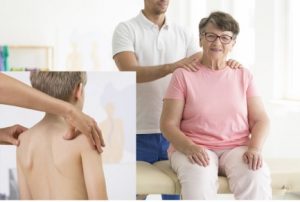
Course Faculty - Nechama Karman, Mary Massery
Course Description - Live in-person course for therapists. Complete both days for 13 Contact Hours (1.3 CEUs).
April 19 and 20, 2024
Atlanta, GA
EARLY BIRD: Register by March 8, 2024 to receive a $25 discount on registration. Apply the coupon code MASSERYAPRIL24 at checkout.
This course, developed by Mary Massery, proposes a new definition of “core stability;” redefining it as the dynamic control of trunk pressures to optimize postural stability (balance).

Course Faculty - Suzanne Davis
Course Description - Live Webinar for Therapists. Complete four sessions for 11.5 Contact Hours (1.15 CEUs)
April 23, 25, 30 and May 2, 2024
6:40 pm EST • 5:40 pm CST • 4:40 pm MST • 3:40 pm PST (US)
SAVE $20 when you register before March 12, 2024.
Contemporary NDT has undergone a paradigm shift that promotes thinking and doing in a new way! This course specifically helps therapists provide evidence-based early intervention in order to impact a baby and family’s life.

Course Faculty - Liesa M. Ritchie-Persaud
Course Description - Live Webinar for Therapists. Complete one session for 7 Contact Hours (0.7 CEUs)
April 24 and 25, 2024
4:40 pm EST • 3:40 pm CST • 2:40 pm MST • 1:40 pm PST (US)
SAVE $15 when you register before March 13, 2024.
Apply “The Act!” to identify an etiology-based problem list, choose suitable and feasible interventions and develop a plan of care specific to each child (further enhancing information previously learned in Therapeutic Evaluation & Management of Toe Walking (Pediatric Equinus Gait).

Course Faculty - Shanna Semmler
Course Description - Live Webinar for Pediatric Therapists. Complete both sessions for 12 Contact Hours (1.2 CEUs)
April 25 and 26, 2024
9:40 am EST • 8:40 am CST • 7:40 am MST • 6:40 am PST (US)
SAVE $20 when you register by March 14, 2024
Learn to evaluate infant feeding performance and provide evidence-supported interventions to maximize infants’ outcomes.

Course Faculty - Anjali Gupta
Course Description - Live Webinar for Therapists. Complete both sessions for 15 Contact Hours (1.5 CEUs)
April 26 and 27, 2024
9:40 am EST • 8:40 am CST • 7:40 am MST • 6:40 am PST (US)
SAVE $20 when you register by March 15, 2024.
This dynamic evolving course will concentrate on progressive, effective evaluation and treatment schemes for infants and young children with a diagnosis of torticollis, including challenging cases.
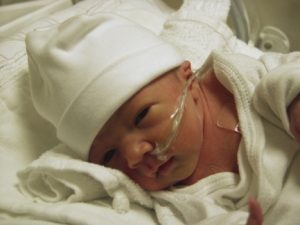
Course Faculty - Holly Schifsky
Course Description - Live In-Person Course for Pediatric Therapists. Complete both days for 15 Contact Hours (1.5 CEUs).
April 27 and 28, 2024
Dallas, TX
SAVE $20 when you register by March 15, 2024.
Course Description - Learn advanced critical reasoning skills and movement analysis skills (via lab time and video presentations) to assess breathing patterns, facilitation techniques to support trunk development, positioning strategies to support chest wall development, and feeding techniques to maximize postural control.
May 2024

Course Faculty - Anne Buckley-Reen
Course Description - Live Webinar for Pediatric Therapists. Attend both sessions for 12 Contact Hours (1.2 CEUs)
May 2 and 3, 2024
8:10 am EST • 7:10 am CST • 6:10 am MST • 5:10 am PST (US)
SAVE $20 when you register before March 21, 2024.
Learn to expand engagement in clients with ASD and address self-stimulatory behaviors, perseveration, and reactive or self-directed behaviors.

Course Faculty - Colleen Carey
Course Description - Live Webinar for Therapists. Complete three sessions for 10 Contact Hours (1.0 CEUs)
May 2, 9 and 16, 2024
5:25 pm EST • 4:25 pm CST • 3:25 pm MST • 2:25 pm PST (US)
SAVE $20 when you register by March 21, 2024.
Begin or advance your knowledge of using NDT to treat the child with neurologic impairments and other pediatric disorders. We will discuss the importance of practice of movement sequences and importance of integrating strategies into daily activities utilizing fun and practical ideas.

Course Faculty - Anjali Gupta
Course Description - Live Webinar for Therapists. Complete one session for 4 Contact Hours (.4 CEUs)
May 2, 2024
5:40 pm EST • 4:40 pm CST • 3:40 pm MST • 2:40 pm PST (US)
SAVE $15 when you register by March 21, 2024.
The presentation will provide evidence-based clinical pathways for management of infant head shape. Differential diagnosis that may lead to head shape differences will be explored.

Course Faculty - Holly Schifsky
Course Description - Live Webinar for Therapists. Complete One Session for 8.5 Contact Hours (.85 CEUs)
May 3, 2024
9:40 am EST • 8:40 am CST • 7:40 am MST • 6:40 am PST (US)
SAVE $15 when you register by March 22, 2024.
Advance your assessment, treatment, and outcomes for infants requiring a tracheostomy tube and/or ventilator.

Course Faculty - Holly Schifsky
Course Description - Live Webinar for Pediatric Therapists. Complete both sessions for 15 Contact Hours (1.5 CEUs)
May 9, 10 and 11, 2024
Thursday, May 9: 6:00 pm - 10:00 pm EST
Friday, May 10: 10:00 am - 6:00 pm EST
Saturday, May 11: 9:00 am - 1:00 pm EST
SAVE $20 when you register by March 23, 2024.
Learn advanced critical reasoning skills and movement analysis skills (via lab time and video presentations) to assess breathing patterns, facilitation techniques to support trunk development, positioning strategies to support chest wall development, and feeding techniques to maximize postural control.

Course Faculty - Joan Arvedson
Course Description - Live Webinar for Pediatric Therapists. Complete Both Sessions for 14.5 Contact Hours (1.45 CEUs)
May 16 and 17, 2024
8:40 am EST • 7:40 am CST • 6:40 am MST • 5:40 am PST (US)
SAVE $20 when you register by April 4, 2024.
Learn to treat children’s complex feeding challenges in a variety of settings including NICU, schools, and rehabilitation clinics.

Course Faculty - Kati Knudsen
Course Description - Live Webinar for Pediatric Therapists. Complete Both Sessions for 15 Contact Hours (1.5 CEUs)
May 31 and June 1, 2024
10:10 am EST • 9:10 am CST • 8:10 am MST • 7:10 am PST (US)
SAVE $20 when you register by April 19, 2024.
Learn strategies and tools to support infants with extreme prematurity, complex neurological diagnoses, and in utero substance exposure using advanced problem-solving techniques.
June 2024

Course Faculty - Amanda Hall
Course Description - LIVE Webinar - Complete both sessions for 12.5 Hours (1.25 CEUs)
June 1 and 2, 2024
9:40 am EST • 8:40 am CST • 7:40 am MST • 6:40 am PST (US)
SAVE $20 when you register by May 20, 2024.
Learn to increase your skill with orthotic recommendations and treatments for the foot and ankle in pediatric and adult patients with neurological, developmental and/or orthopedic diagnoses.

Course Faculty - Suzanne Davis
Course Description - Live Webinar for Therapists. Complete all sessions for 11.5 Contact Hours (1.15 CEUs)
June 6 and 7, 2024
9:40 am EST • 8:40 am CST • 7:40 am MST • 6:40 am PST (US)
SAVE $20 when you register by April 25, 2024.
We hear about ‘the core’ all of the time, but it is so much more than just the abdominals! Treating children, whether they are high functioning or have more complex issues, requires a thorough understanding of the muscles that provide core stability. An evidence-based, multi-system approach is taken to examine and devise effective intervention strategies that are immediately applicable to a variety of pediatric populations.

Course Faculty - Roberta Gatlin
Course Description - Live Webinar for Therapists. Complete both sessions for 15 Hours (1.5 CEUs)
June 7 and 8, 2024
9:40 am EST • 8:40 am CST • 7:40 am MST • 6:40 am PST (US)
SAVE $20 when you register by April 26, 2024.
Focus on interventions and strategies to prepare the child (and family) to transition out of the NICU and into the home.

Course Faculty - Christina Finn
Course Description - Live Webinar for Therapists. Complete both sessions for 10 contact hours (1.0 CEUs)
June 7 and 14, 2024
10:10 am EST • 9:10 am CST • 8:10 am MST • 7:10 am PST (US)
SAVE $20 when you register by April 26, 2024
Learn the latest relevant assessment and treatment strategies for patients across the lifespan who experience prolonged visual, vestibular, and sensory complaints as a result of a concussion.

Course Faculty - Liesa M. Ritchie-Persaud
Course Description - Live Webinar for Therapists. Complete three sessions for 12.5 Contact Hours (1.25 CEUs)
June 10, 12 and 17, 2024
June 10 and 12 | 4:40 pm EST • 3:40 pm CST • 2:40 pm MST • 1:40 pm PST
June 17 | 5:40 pm EST • 4:40 pm CST • 3:40 pm MST • 2:40 pm PST
SAVE $20 when you register by April 29, 2024.
Take evidence-based action for your young patients and move away from the “wait and see” approach for gait development.

Course Faculty - Janine Wiskind
Course Description - Live Webinar for Pediatric Therapists. Complete all 3 Sessions for 12 Contact Hours (1.2 CEUs)
June 13, 20 and 27, 2024
5:40 pm EST • 4:40pm CST • 3:40 pm MST • 2:40 pm PST (US)
SAVE $20 when you register by May 2, 2024.
Hone your skills in the evaluation and treatment of primitive reflexes through interactive labs and case studies by utilizing a functional and play-based approach.

Course Faculty - Rona Alexander
Course Description - Live Webinar for Therapists. Complete both sessions for 13 Contact Hours (1.3 CEUs)
June 20 and 21, 2024
9:10 am EST • 8:10 am CST • 7:10 am MST• 6:10 am PST (US)
SAVE $20 when you register by May 9, 2024
Learn clinically relevant assessment and treatment strategies for children with neuromuscular impairments and feeding, swallowing, and respiratory challenges.
July 2024

Course Faculty - Anjanette Lee
Course Description - Live Webinar for Therapists.
Complete Both Sessions for 14 Contact Hours (1.4 CEUs)
July 12 and 13, 2024
9:40 am EST • 8:40 am CST • 7:40 am MST • 6:40 am PST (US)
SAVE $20 when you register by May 31, 2024
Learn how to treat the complex neonate using a neuroprotective framework in this interactive and engaging course.

NEW COURSE!
Course Faculty - Leslie Paparsenos
Course Description - Live Webinar for Pediatric Therapists. Complete both sessions for 12 Contact Hours (1.2 CEUs)
July 18 and 19, 2024
8:10 am EST • 7:10 am CST • 6:10 am MST • 5:10 am PST (US)
SAVE $20 when you register by June 6, 2024.
Improve participation, function and awareness of self in space for the clumsy child by learning to implement the latest evidence in neuroplasticity, motor learning and control.

Course Faculty - Holly Schifsky
Course Description - Live Webinar for Pediatric Therapists. Complete both days for 15 Contact Hours (1.5 CEUs).
July 19 and 20, 2024
8:40 am EST • 7:40 am CST • 6:40 am MST • 5:40 am PST (US)
SAVE $20 when you register by June 7, 2024.
This intermediate-advanced course will provide a systems-based approach to assess the premature/medically complex infant in the NICU/PICU setting. It will focus on understanding the co-morbidities associated with prematurity and medically-complex infants and increase critical reasoning skills for the clinician to create treatment plans to advance motor and feeding skills for the infant.

NEW COURSE!
Course Faculty - Anais Villaluna, Dana Kizer, Trisha Thorne
Course Description - Live Webinar for Therapists. Complete both sessions for 12.5 Contact Hours (1.25 CEUs)
July 20 and 21, 2024
9:40 am EST • 8:40 am CST • 7:40 am MST• 6:40 am PST (US)
SAVE $20 when you register by June 8, 2024.
Go beyond the basics by utilizing a multidisciplinary lens to assess and treat infants and children with torticollis with motor and feeding difficulties.

Course Faculty - Shanna Semmler
Course Description - Live Webinar for Pediatric Therapists. Complete both sessions for 12 Contact Hours (1.2 CEUs)
July 25 and 26, 2024
9:40 am EST • 8:40 am CST • 7:40 am MST • 6:40 am PST (US)
SAVE $20 when you register by June 13, 2024
Learn to evaluate infant feeding performance and provide evidence-supported interventions to maximize infants’ outcomes.

Course Faculty - Jeryl Benson
Course Description - Live Webinar for Therapists. Complete Both Sessions for 12 Contact Hours (1.2 CEUs)
July 25 and 26, 2024
9:40 am EST • 8:40 am CST • 7:40 am MST • 6:40 am PST (US)
SAVE $20 when you register by June 13, 2024.
ERI is partnering with P.G. Chambers School to offer this live webinar.
Cognition and executive function skills: learn how to assess the various components of each and choose evidence-based interventions/strategies that positively impact a child’s participation goals.
August 2024

NEW COURSE!
Course Faculty - Bethanne Mazurczak, Leslie Paparsenos
Course Description - Live Webinar for Therapists. Complete both sessions for 15 Contact Hours (1.5 CEUs)
August 8 and 9, 2024
8:40 am EST • 7:40 am CST • 6:40 am MST • 5:40 am PST (US)
SAVE $20 when you register by June 27, 2024.
Effectively implement NDT handling and facilitation to improve feeding, communication, ADLs, gross and fine motor skills for children with cerebral palsy and other neuromuscular disorders during their daily life activities.

Course Faculty - Mary Massery
Course Description - Live Webinar for Therapists. Complete both sessions for 8 Contact Hours (0.8 CEUs)
PART 1 of Mary Massery's Full 3 Day "LINKED" Course
August 9 and 10, 2024
Day 1: 9:30 am EST • 8:30 am CST • 7:30 am MST • 6:30 am PST
Day 2: 9:30 am EST • 8:30 am CST • 7:30 am MST • 6:30 am PST
* webinar waiting room opens 15 minutes prior to start time (US)
Create a paradigm shift that links breathing mechanics, postural control, physiologic behaviors, and management of trunk pressures to treat clients across the lifespan.
EARLY BIRD RATE: Register before June 28, 2024 to receive a discounted rate of $235. Use coupon code MASSERYAUG24 at checkout.

NEW COURSE!
Course Faculty - Inger Brueckner
Course Description - Live Webinar for Therapists. Complete both sessions for 14.5 Contact Hours (1.45 CEUs)
August 16 and 17, 2024
8:40 am EST • 7:40 am CST • 6:40 am MST • 5:40 am PST (US)
SAVE $20 when you register by July 5, 2024.
Learn to comprehensively manage the pediatric patient with single or multiple limb loss and enhance your clinical decision-making skills to improve functional outcomes.

Course Faculty - Janine Wiskind
Course Description - Live Webinar for Pediatric Therapists. Complete all 3 Sessions for 12 Contact Hours (1.2 CEUs)
August 22, 2024: 5:40 pm EST • 4:40pm CST • 3:40 pm MST • 2:40 pm PST (US)
August 23 and 24, 2024: 8:40 am EST • 7:40 am CST • 6:40 am MST • 5:40 am PST (US)
SAVE $20 when you register by July 11, 2024.
ERI is partnering with P.G. Chambers School to offer this live webinar.
Hone your skills in the evaluation and treatment of primitive reflexes through interactive labs and case studies by utilizing a functional and play-based approach.

Course Faculty - Joan Arvedson
Course Description - Live Webinar for Pediatric Therapists. Complete Both Sessions for 14.5 Contact Hours (1.45 CEUs)
August 23 and 24, 2024
8:40 am EST • 7:40 am CST • 6:40 am MST • 5:40 am PST (US)
Learn to treat children’s complex feeding challenges in a variety of settings including NICU, schools, and rehabilitation clinics.

Course Faculty - Jocelynn Wallach
Course Description - Live Webinar for Therapists. Complete one session for 5.5 Contact Hours (.55 CEUs)
August 23, 2024
8:40 am EST • 7:40 am CST • 6:40 am MST • 5:40 am PST (US)
SAVE $15 when you register by July 12, 2024.
Learn innovative methods to facilitate the development of self-regulation, attention, organization and memory, as well as environmental accommodations and modifications to improve the independence of students and patients.

Course Faculty - Roberta Gatlin
Course Description - Live Webinar for Therapists. Complete both sessions for 15 Hours (1.5 CEUs)
August 23 and 24, 2024
9:40 am EST • 8:40 am CST • 7:40 am MST • 6:40 am PST (US)
SAVE $20 when you register by July 12, 2024.
Focus on interventions and strategies to prepare the child (and family) to transition out of the NICU and into the home.
September 2024

Course Faculty - Siobhan O'Donnell
Course Description - Live Webinar for Pediatric Therapists. Complete all Sessions for 14 Contact Hours (1.4 CEUs)
September 5, 12, 19 and 26, 2024
5:40 pm EST • 4:40 pm CST • 3:40 pm MST • 2:40 pm PST (US)
SAVE $20 when you register before July 25, 2024.
Learn the latest research to improve the treatment of the critically ill child.

Course Faculty - Anjali Gupta
Course Description - Live Webinar for Therapists. Complete one session for 4 Contact Hours (.4 CEUs)
September 12, 2024
5:40 pm EST • 4:40 pm CST • 3:40 pm MST • 2:40 pm PST (US)
SAVE $15 when you register by August 1, 2024.
The presentation will provide evidence-based clinical pathways for management of infant head shape. Differential diagnosis that may lead to head shape differences will be explored.

Course Faculty - Holly Schifsky
Course Description - Live Webinar for Pediatric Therapists. Complete both days for 15 Contact Hours (1.5 CEUs).
September 13 and 14, 2024
8:40 am EST • 7:40 am CST • 6:40 am MST • 5:40 am PST (US)
SAVE $20 when you register by July 27, 2024.
This intermediate-advanced course will provide a systems-based approach to assess the premature/medically complex infant in the NICU/PICU setting. It will focus on understanding the co-morbidities associated with prematurity and medically-complex infants and increase critical reasoning skills for the clinician to create treatment plans to advance motor and feeding skills for the infant.

Course Faculty - Anjali Gupta
Course Description - Live Webinar for Therapists. Complete both sessions for 15 Contact Hours (1.5 CEUs)
September 13 and 14, 2024
9:40 am EST • 8:40 am CST • 7:40 am MST • 6:40 am PST (US)
SAVE $20 when you register by August 2, 2024.
This dynamic evolving course will concentrate on progressive, effective evaluation and treatment schemes for infants and young children with a diagnosis of torticollis, including challenging cases.

Course Faculty - Suzanne Davis
Course Description - Live Webinar for Therapists. Complete four sessions for 11.5 Contact Hours (1.15 CEUs)
September 13 and 14, 2024
9:40 am EST • 8:40 am CST • 7:40 am MST • 6:40 am PST (US)
SAVE $20 when you register by August 2, 2024.
Contemporary NDT has undergone a paradigm shift that promotes thinking and doing in a new way! This course specifically helps therapists provide evidence-based early intervention in order to impact a baby and family’s life.

Course Faculty - Anais Villaluna, Dana Kizer
Course Description - Live webinar for therapists. Complete all four sessions for 11.5 Contact hours (1.15 CEUs)
September 14 and 15, 2024
9:40 am EST • 8:40 am CST • 7:40 am MST • 6:40 am PST (US)
SAVE $20 when you register by August 3, 2024
BRIDGE the gap between the developmental, neurological, physiological, motor, sensory, and behavioral components to learn tools and strategies to guide your decision making process in the management of complex pediatric feeding and swallowing cases.

NEW COURSE!
Course Faculty - Christy Hupka, Amy Barr
Course Description - Live Webinar for Therapists. Complete both sessions for 12 Contact Hours (1.2 CEUs)
September 14 and 21, 2024
8:40 am EST • 7:40 am CST • 6:40 am MST • 5:40 am PST (US)
SAVE $20 when you register by August 3, 2024.
This course provides evidence-based, collaborative, neuroaffirming strategies to improve developmental outcomes for children with autism through child-centered care.

Course Faculty - Amanda Hall
Course Description - LIVE Webinar - Complete both sessions for 12.5 Hours (1.25 CEUs)
September 15 and 16, 2024
9:40 am EST • 8:40 am CST • 7:40 am MST • 6:40 am PST (US)
SAVE $20 when you register by August 4, 2024.
Learn to increase your skill with orthotic recommendations and treatments for the foot and ankle in pediatric and adult patients with neurological, developmental and/or orthopedic diagnoses.

NEW COURSE!
Course Faculty - Anjanette Lee
Course Description - Live Webinar for Therapists. Complete the Session for 4 Contact Hours (0.4 CEUs)
September 20, 2024
9:40 am EST • 8:40 am CST • 7:40 am MST • 6:40 am PST (US)
SAVE $15 when you register by August 9, 2024
Course Description - The third of a 4-part series, this course focuses on core component skill sets within three NT domains: Environment, Family/Psychosocial Support, and the Neurobehavioral System.
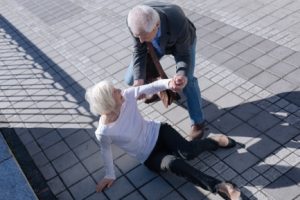
Course Faculty - Richard Clendaniel
Course Description - Live Webinar for Therapists. Complete Both Sessions for 12 Contact Hours (1.2 CEUs)
September 21 and 22, 2024
10:10 am EST • 9:10 am CST • 8:10 am MST • 7:10 am PST (US)
SAVE $20 when you register by August 10, 2024
Learn effective, comprehensive, and evidence-based treatment and evaluation of the number one reason individuals over the age of 70 seek medical attention: Dizziness.

NEW COURSE!
Course Faculty - Anjanette Lee
Course Description - Live Webinar for Therapists.
September 21, 2024
9:40 am EST • 8:40 am CST • 7:40 am MST • 6:40 am PST (US)
Course Description - The fourth of a 4-part series, this course focuses on core component skill sets within three NT domains: the Sensory System, Neuromotor & Musculoskeletal Systems, and Oral Feeding & Swallowing. This course offers self-assessment and support planning for next steps towards independent practice in the NICU.

Course Faculty - Liesa M. Ritchie-Persaud
Course Description - Live Webinar for Therapists. Complete all sessions for 11.5 Contact Hours (1.15 CEUs)
September 23, 25 and 26, 2024
September 23 | 4:40 pm EST • 3:40 pm CST • 2:40 pm MST • 1:40 pm PST
September 25 and 26 | 5:40 pm EST • 4:40 pm CST • 3:40 pm MST • 2:40 pm PST
SAVE $20 when you register before August 12, 2024.
This evidence-based course helps clinicians develop interventions based on etiologies through comprehensive assessments of toe walking (pediatric equinus gait).

Course Faculty - Rona Alexander
Course Description - Live Webinar for Therapists. Complete both sessions for 13 Contact Hours (1.3 CEUs)
September 27 and 28, 2024
9:10 am EST • 8:10 am CST • 7:10 am MST• 6:10 am PST (US)
SAVE $20 when you register by August 16, 2024
Learn clinically relevant assessment and treatment strategies for children with neuromuscular impairments and feeding, swallowing, and respiratory challenges.

Course Faculty - Holly Schifsky
Course Description - Live Webinar for Therapists. Complete One Session for 8.5 Contact Hours (.85 CEUs)
September 27, 2024
9:40 am EST • 8:40 am CST • 7:40 am MST • 6:40 am PST (US)
SAVE $15 when you register by August 16, 2024.
Advance your assessment, treatment, and outcomes for infants requiring a tracheostomy tube and/or ventilator.

Course Faculty - Archana Vatwani
Course Description - Live webinar for therapists. Complete all three sessions for 9 Contact Hours (0.9 CEUs).
September 28 and 29, 2024
9:40 am EST • 8:40 am CST • 7:40 am MST • 6:40 am PST (US)
SAVE $20 when you register by August 17, 2024.
Learn how to manage complex cardiovascular, pulmonary and lymphedema diagnoses through physiological monitoring, diagnostic testing, and utilization of functional and objective measures for effective clinical decision making for best patient outcomes.

Course Faculty - Holly Schifsky
Course Description - Live Webinar for Pediatric Therapists. Complete both sessions for 15 Contact Hours (1.5 CEUs)
September 30, October 1, 7 and 8, 2024
5:40 pm EST • 4:40 pm CST • 3:40 pm MST • 2:40 pm PST (US)
SAVE $20 when you register by August 28, 2024.
Learn advanced critical reasoning skills and movement analysis skills (via lab time and video presentations) to assess breathing patterns, facilitation techniques to support trunk development, positioning strategies to support chest wall development, and feeding techniques to maximize postural control.
Course Description - Participant Requirements for the course: In order to maximize the learning experience during lab time, each participant needs to bring a soft body doll. The ideal size would be 10-15”, but any soft body doll will work.
October 2024

Course Faculty - Christina Finn
Course Description - Live Webinar for Therapists. Complete both sessions for 10 contact hours (1.0 CEUs)
October 4 and 5, 2024
10:10 am EST • 9:10 am CST • 8:10 am MST • 7:10 am PST (US)
SAVE $20 when you register by August 23, 2024
Learn the latest relevant assessment and treatment strategies for patients across the lifespan who experience prolonged visual, vestibular, and sensory complaints as a result of a concussion.

Course Faculty - Joan Arvedson
Course Description - Live Webinar for Pediatric Therapists. Complete Both Sessions for 14.5 Contact Hours (1.45 CEUs)
October 5 and 6, 2024
8:40 am EST • 7:40 am CST • 6:40 am MST • 5:40 am PST (US)
Learn to treat children’s complex feeding challenges in a variety of settings including NICU, schools, and rehabilitation clinics.

Course Faculty - Kati Knudsen
Course Description - Live Webinar for Pediatric Therapists. Complete Both Sessions for 15 Contact Hours (1.5 CEUs)
October 18 and 19, 2024
10:10 am EST • 9:10 am CST • 8:10 am MST • 7:10 am PST (US)
SAVE $20 when you register by September 6, 2024
Learn strategies and tools to support infants with extreme prematurity, complex neurological diagnoses, and in utero substance exposure using advanced problem-solving techniques.

Course Faculty - Shanna Semmler
Course Description - Live Webinar for Pediatric Therapists. Complete both sessions for 12 Contact Hours (1.2 CEUs)
October 18 and 19, 2024
9:40 am EST • 8:40 am CST • 7:40 am MST • 6:40 am PST (US)
SAVE $20 when you register by July 12, 2024.
Learn to evaluate infant feeding performance and provide evidence-supported interventions to maximize infants’ outcomes.
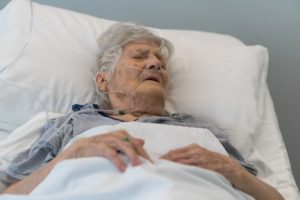
Course Faculty - Chris Wells
Course Description - Live Webinar for Therapists. Complete both Sessions for 13.5 Contact Hours (1.35 CEUs)
October 19 and 20, 2024
9:40 am EST • 8:40 am CST • 7:40 am MST • 6:40 am PST (US)
SAVE $20 when you register by September 7, 2024.
Learn the evidence-based fundamentals and essentials of ICU rehab from mechanical ventilation and early mobilization, to functional assessments and treatments.

Course Faculty - Liesa M. Ritchie-Persaud
Course Description - Live Webinar for Pediatric Therapists. Complete both Sessions for 11 Contact Hours (1.1 CEUs)
October 21, 23 and 28, 2024
5:40 pm EST • 4:40 pm CST • 3:40 pm MST • 2:40 pm PST (US)
SAVE $20 when you register by September 9, 2024.
Gain practical “Sensory-Aware” tools to effectively treat children with both gross motor and sensory dysfunction.

Course Faculty - Jocelynn Wallach
Course Description - Live Webinar for Therapists. Complete two sessions for 5.5 Contact Hours (.55 CEUs)
October 22 and 29, 2024
5:40 pm EST • 4:40 pm CST • 3:40 pm MST • 2:40 pm PST (US)
SAVE $15 when you register by September 10, 2024.
Learn innovative methods to facilitate the development of self-regulation, attention, organization and memory, as well as environmental accommodations and modifications to improve the independence of students and patients.

Course Faculty - Anne Buckley-Reen
Course Description - Live Webinar for Pediatric Therapists. Attend both sessions for 12 Contact Hours (1.2 CEUs)
October 24 and 25, 2024
8:10 am EST • 7:10 am CST • 6:10 am MST • 5:10 am PST (US)
SAVE $20 when you register before September 12, 2024.
Learn to expand engagement in clients with ASD and address self-stimulatory behaviors, preservation, and reactive or self-directed behaviors.

Course Faculty - Lynn Wolf, Robin Glass
Course Description - Live webinar for therapists. Complete both sessions for 14 contact hours (1.4 CEUs)
October 25 and 26, 2024
9:40 am EST • 8:40 am CT • 7:40 am MST • 6:40 am PT (US)
SAVE $20 when you register by September 13, 2024.
Expand evaluation skills and learn intervention techniques for infants struggling with feeding or swallowing.

Course Faculty - Anais Villaluna, Dana Kizer
Course Description - Live webinar for therapists. Complete all four sessions for 11.5 Contact hours (1.15 CEUs)
October 26 and 27, 2024
9:40 am EST • 8:40 am CST • 7:40 am MST • 6:40 am PST (US)
SAVE $20 when you register by July 22, 2024
BRIDGE the gap between the developmental, neurological, physiological, motor, sensory, and behavioral components to learn tools and strategies to guide your decision making process in the management of complex pediatric feeding and swallowing cases.
November 2024
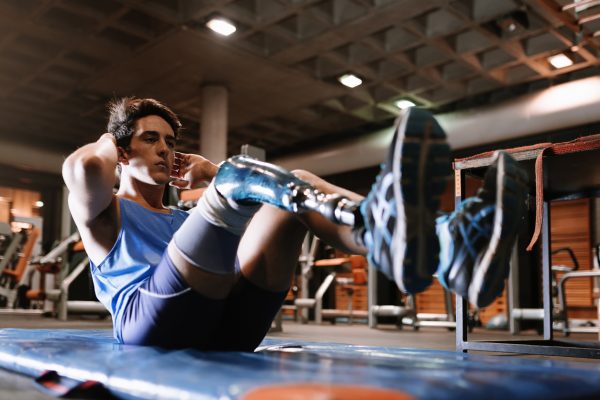
Course Faculty - Inger Brueckner
Course Description - Live Webinar for Therapists. Complete both sessions for 14.5 Contact Hours (1.45 CEUs)
November 2 and 3, 2024
9:40 am EST • 8:40 am CST • 7:40 am MST • 6:40 am PST (US)
SAVE $20 when you register by October 21, 2024.
Learn the latest research, technology, and post-operative treatments to elicit the best outcomes for patients with amputations.
ERI is partnering with Providence Health for this webinar.

Course Faculty - Mary Massery
Course Description - Live in-person course for therapists. Complete both days for 13 Contact Hours (1.3 CEUs).
November 2 and 3, 2024
In-person Houston, TX
EARLY BIRD: Register by September 21, 2024 to receive a $25 discount on registration. Apply the coupon code MASSERYNOV24 at checkout.
This course, developed by Mary Massery, proposes a new definition of “core stability;” redefining it as the dynamic control of trunk pressures to optimize postural stability (balance).

Course Faculty - Liesa M. Ritchie-Persaud
Course Description - Live Webinar for Therapists. Complete one session for 7 Contact Hours (0.7 CEUs)
November 4, 2024
9:40 am EST • 8:40 am CST • 7:40 am MST • 6:40 am PST (US)
SAVE $15 when you register by September 23, 2024.
In this new course, clinicians will apply “The Act!” to identify an etiology-based problem list, choose suitable and feasible interventions and develop a plan of care specific to each child (further enhancing information previously learned in “Therapeutic Evaluation and Management of Toe Walking (Pediatric Equinus Gait)”

Course Faculty - Josephine Bardabelias
Course Description - Live Webinar for Therapists. Complete all sessions for 12 Contact Hours (1.2 CEUs)
November 6, 7, 13 and 14, 2024
6:10 pm EST • 5:10 pm CST • 4:10 pm MST • 3:10 pm PST (US)
SAVE $20 when you register by September 25, 2024.
Exercise strengthens the body and brain! Learn innovative ways to integrate movement with learning while concentrating on developmental and functional skills.

Course Faculty - Suzanne Davis
Course Description - Live Webinar for Therapists. Complete all sessions for 11.5 Contact Hours (1.15 CEUs)
November 7 and 8, 2024
9:40 am EST • 8:40 am CST • 7:40 am MST • 6:40 am PST (US)
SAVE $20 when you register by September 26, 2024.
We hear about ‘the core’ all of the time, but it is so much more than just the abdominals! Treating children, whether they are high functioning or have more complex issues, requires a thorough understanding of the muscles that provide core stability. An evidence-based, multi-system approach is taken to examine and devise effective intervention strategies that are immediately applicable to a variety of pediatric populations.

NEW COURSE!
Course Faculty - Anais Villaluna, Dana Kizer, Trisha Thorne
Course Description - Live Webinar for Therapists. Complete both sessions for 12.5 Contact Hours (1.25 CEUs)
November 9 and 10, 2024
9:40 am EST • 8:40 am CST • 7:40 am MST• 6:40 am PST (US)
SAVE $20 when you register by October 28, 2024.
Go beyond the basics by utilizing a multidisciplinary lens to assess and treat infants and children with torticollis with motor and feeding difficulties.

Course Faculty - Roberta Gatlin
Course Description - Live Webinar - Complete both sessions for 15 Hours (1.5 CEUs)
November 15 and 16, 2024
9:40 am EST • 8:40 am CST • 7:40 am MST • 6:40 am PST (US)
SAVE $20 when you register by October 4, 2024
A hands-on course designed to increase the NICU therapist’s knowledge through evidenced-based assessments and interventions.

Course Faculty - Suzanne Davis
Course Description - Live In-Person Course for Therapists. Complete both days for 11.5 Contact Hours (1.15 CEUs)
November 16 and 17, 2024
9:00 am CST both days (Registration 8:30-9:00 am)
Plano, TX
SAVE $20 when you register by October 5, 2024.
We hear about "the core" all of the time, but it is so much more than just the abdominals! Treating children, whether they are high functioning or have more complex issues, requires a thorough understanding of the muscles that provide core stability. An evidence-based, multi-system approach is taken to examine and devise effective intervention strategies that are immediately applicable to a variety of pediatric populations.
December 2024

Course Faculty - Jeryl Benson
Course Description - Live Webinar for Therapists. Complete Four Sessions for 12 Contact Hours (1.2 CEUs)
December 3, 5, 10 and 12, 2024
5:40 pm EST • 4:40 pm CST • 3:40 pm MST • 2:40 pm PST (US)
SAVE $20 when you register by October 22, 2024.
Learning to think: evaluate and treat children’s cognitive and executive function challenges to improve their participation at home and school.

Course Faculty - Rona Alexander
Course Description - Live Webinar for Therapists. Complete both sessions for 13 Contact Hours (1.3 CEUs)
December 5 and 6, 2024
9:10 am EST • 8:10 am CST • 7:10 am MST• 6:10 am PST (US)
SAVE $20 when you register by October 24, 2024
Learn clinically relevant assessment and treatment strategies for children with neuromuscular impairments and feeding, swallowing, and respiratory challenges.

Course Faculty - Anne Buckley-Reen
Course Description - Live Webinar for Pediatric Therapists. Attend both sessions for 12 Contact Hours (1.2 CEUs)
December 6 and 7, 2024
9:40 am EST • 8:40 am CST • 7:40 am MST • 6:40 am PST (US)
SAVE $20 when you register before October 25, 2024.
Learn to expand engagement in clients with ASD and address self-stimulatory behaviors, preservation, and reactive or self-directed behaviors.

Course Faculty - Inger Brueckner
Course Description - Live Webinar for Therapists. Complete both sessions for 14.5 Contact Hours (1.45 CEUs)
December 6 and 13, 2024
9:40 am EST • 8:40 am CST • 7:40 am MST • 6:40 am PST (US)
SAVE $20 when you register by November 25, 2024.
Learn the latest research, technology, and post-operative treatments to elicit the best outcomes for patients with amputations.

Course Faculty - Richard Clendaniel
Course Description - Live Webinar for Therapists. Complete Both Sessions for 12 Contact Hours (1.2 CEUs)
December 7 and 8, 2024
10:10 am EST • 9:10 am CST • 8:10 am MST• 7:10 am PST (US)
SAVE $20 when you register by October 26, 2024
The course will focus on the assessment and treatment of patients with vertigo and dysequilibrium from unusual vestibular causes. The course is designed for clinicians (PT & OT) with prior vestibular rehabilitation course work and clinical experience.

Course Faculty - Liesa M. Ritchie-Persaud
Course Description - Live Webinar for Therapists. Complete both sessions for 12.5 Contact Hours (1.25 CEUs)
December 9 and 10, 2024
9:40 am EST • 8:40 am CST • 7:40 am MST • 6:40 am PST
SAVE $20 when you register by October 28, 2024.
ERI is partnering with P.G. Chambers School to offer this live webinar.
Take evidence-based action for your young patients and move away from the “wait and see” approach for gait development.

Course Faculty - Suzanne Davis
Course Description - Live Webinar for Therapists. Complete three sessions for 11.5 Contact Hours (1.15 CEUs)
December 10, 12 and 14, 2024
10th and 12th | 6:40 pm EST • 7:40 pm CST • 6:40 pm MST • 5:40 pm PST (US)
14th | 9:40 am EST • 8:40 am CST • 7:40 am MST • 6:40 am PST (US)
SAVE $20 when you register by October 29, 2024.
Contemporary NDT has undergone a paradigm shift that promotes thinking and doing in a new way! This course specifically helps therapists provide evidence-based early intervention in order to impact a baby and family’s life.
